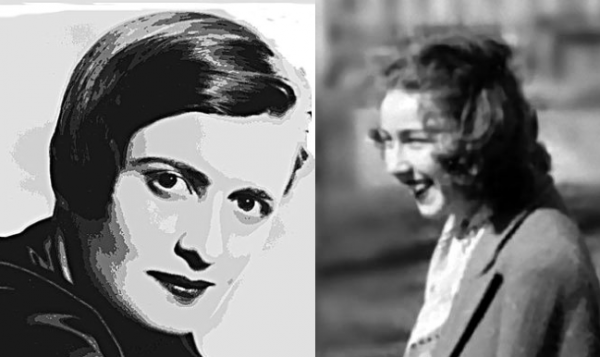
In a letter dated May 31, 1960, Flannery O’Connor, the author best known for her classic story, “A Good Man is Hard to Find” (listen to her read the story here) penned a letter to her friend, the playwright Maryat Lee. It begins rather abruptly, likely because it’s responding to something Maryat said in a previous letter:
I hope you don’t have friends who recommend Ayn Rand to you. The fiction of Ayn Rand is as low as you can get re fiction. I hope you picked it up off the floor of the subway and threw it in the nearest garbage pail. She makes Mickey Spillane look like Dostoevsky.
The letter, which you can read online or find in the book The Habit of Being, then turns to other matters.
O’Connor’s critical appraisal of Ayn Rand’s books is pretty straightforward. But here’s one factoid worth knowing. Mickey Spillane (referenced in O’Connor’s letter) was a hugely popular mystery writer, who sold some 225 million books during his lifetime. According to his Washington Post obit, “his specialty was tight-fisted, sadistic revenge stories, often featuring his alcoholic gumshoe Mike Hammer and a cast of evildoers.” Critics, appalled by the sex and violence in his books, dismissed his writing. But Ayn Rand defended him. In public, she said that Spillane was underrated. In her book The Romantic Manifesto, Rand put Spillane in some unexpected company when she wrote: “[Victor] Hugo gives me the feeling of entering a cathedral–Dostoevsky gives me the feeling of entering a chamber of horrors, but with a powerful guide–Spillane gives me the feeling of listening to a military band in a public park–Tolstoy gives me the feeling of an unsanitary backyard which I do not care to enter.”
All of this goes to show that _____. We’ll let you fill in the blank.
If you would like to sign up for Open Culture’s free email newsletter, please find it here. It’s a great way to see our new posts, all bundled in one email, each day.
If you would like to support the mission of Open Culture, consider making a donation to our site. It’s hard to rely 100% on ads, and your contributions will help us continue providing the best free cultural and educational materials to learners everywhere. You can contribute through PayPal, Patreon, and Venmo (@openculture). Thanks!
Related Content:
Why Should We Read Flannery O’Connor? An Animated Video Makes the Case
When Ayn Rand Collected Social Security & Medicare, After Years of Opposing Benefit Programs
Ayn Rand Helped the FBI Identify It’s A Wonderful Life as Communist Propaganda
Hear Flannery O’Connor Read “A Good Man is Hard to Find” (1959)
Ayn Rand Issues 13 Commandments to Filmmakers for Making Good Capitalist Movies (1947)
Flannery O’Connor’s Satirical Cartoons: 1942–1945


How’re the blanks supposed to be filled?
…friends don’t let friends read Ayn Rand…
I love Rand, and recommend that everyone read her. She could change your life for the better if you’re a thinking type of person. If you’re not, it doesn’t really matter who you read, does it.